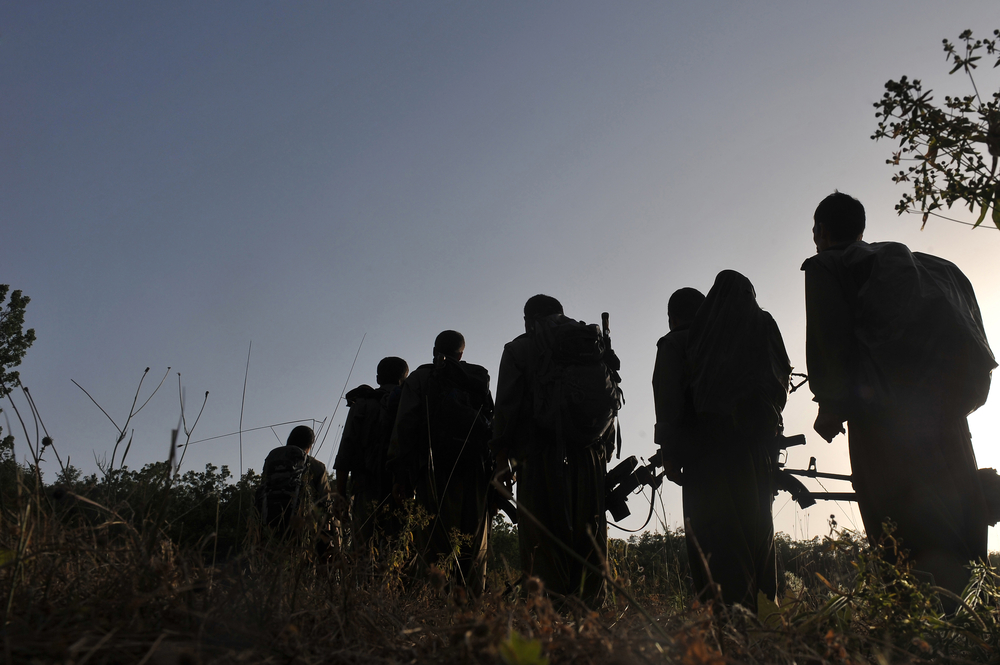
ANKARA, Turkey – In a major tactical shift, Turkish warplanes struck Islamic State group targets Friday across the border in Syria, Turkish officials announced – a move that came a day after IS militants fired at a Turkish military outpost, killing a soldier.
Turkey, which spans Europe and Asia and borders the Middle East, had long been reluctant to join the U.S.-led coalition against the extremist group.
In a related, long-awaited development, President Recep Tayyip Erdogan confirmed that Turkey had agreed to let the U.S. use a key base in southern Turkey for military operations against the militants “within a certain framework.” He did not elaborate on the agreement, which a U.S. official said was reached during a phone call this week with President Barak Obama.
On Friday, Prime Minister Ahmet Davutoglu said the airstrikes had “removed potential threats” to Turkey, hitting targets with “100 percent accuracy.” He did not rule out further airstrikes, saying Turkey was determined to stave off all terror threats against it.
The private Dogan news agency said as many as 35 IS militants were killed in one of the three targets. The agency did not cite a source for the report and there was no official confirmation.
“This was not a point operation, this is a process,” Davutoglu said. “It is not limited to one day or to one region… The slightest movement threatening Turkey will be retaliated against in the strongest way possible.”
For their part, Turkish police launched a major operation Friday against terror groups including Islamic State, carrying out simultaneous raids in Istanbul and 12 provinces and detaining more than 290 people.
A government official said three F-16 jets took off from Diyarbakir air base in southeast Turkey early Friday and used smart bombs to hit three IS targets. The official, who spoke on condition of anonymity because of government rules requiring authorization for comment, said the targets were two command centers and a gathering point for IS supporters.
Rami Abdurrahman, who heads the Britain-based Syrian Observatory for Human Rights said the three Turkish airstrikes were all near the border, ranging from 200 meters (yards) to four kilometers (2.4 miles) inside Syria.
He said the airstrikes targeted vehicles for the extremists as well a gathering point for the group. Abdurrahman said several IS fighters were killed in the airstrikes but much less than the 35 reported by Turkish media.
“(IS) is imposing a blackout on its losses, although there aren’t large losses,” Abdurrahman said by telephone. He said one of the strikes hit just north of the Syrian border village of Hawar al-Nahr.
Davutoglu said Turkish planes did not violate Syrian airspace on Friday, but he did not rule out incursions in the future. He denied news reports claiming that Turkey had informed the Syrian regime about the airstrikes, but said it had contacted NATO allies before the operation.
The agreement on using Incirlik follows months of U.S. appeals to Turkey and delicate negotiations over Incirlik and other bases by the U.S.-led coalition – a sensitive topic in Turkey. When asked about the accord, Davutoglu said an agreement that takes Turkey’s concerns into account had been reached, but did not elaborate.
Citing operational security, the White House declined to confirm the agreement, but noted that Obama and Erdogan had agreed to “deepen our cooperation” against IS in their phone call Wednesday.
Turkey’s moves came as the country finds itself drawn further into the conflict in Syria by a series of deadly attacks and signs of increased IS activity inside the country.
A government statement said the airstrikes were approved at a meeting Thursday after five IS militants fired from Syrian territory at the Turkish outpost, prompting Turkish retaliation that killed at least one IS militant.
The state-run Anadolu Agency said as many as 5,000 police officers were involved in Friday’s sweep against suspected extremists which was also targeting the PKK Kurdish rebel group and the outlawed far-left group, DHKP-C. Davutoglu said those detained included 37 foreign nationals but did not give details on their home countries.
One DHKP-C suspect, a woman, was killed in a gunfight with police in Istanbul, Anadolu reported.
Earlier this week, a suicide bombing blamed on IS militants killed 32 people in Suruc, a Turkish town near the Syrian border.
Turkish officials have raised concerns that the bombing was part of a campaign of retaliation for Turkey’s recent crackdown on IS operations in the country. In the last six months, Turkish officials say, more than 500 people suspected of working with IS have been detained. – Butler reported from Istanbul. Bassem Mroue in Beirut and Josh Lederman in Washington contributed.